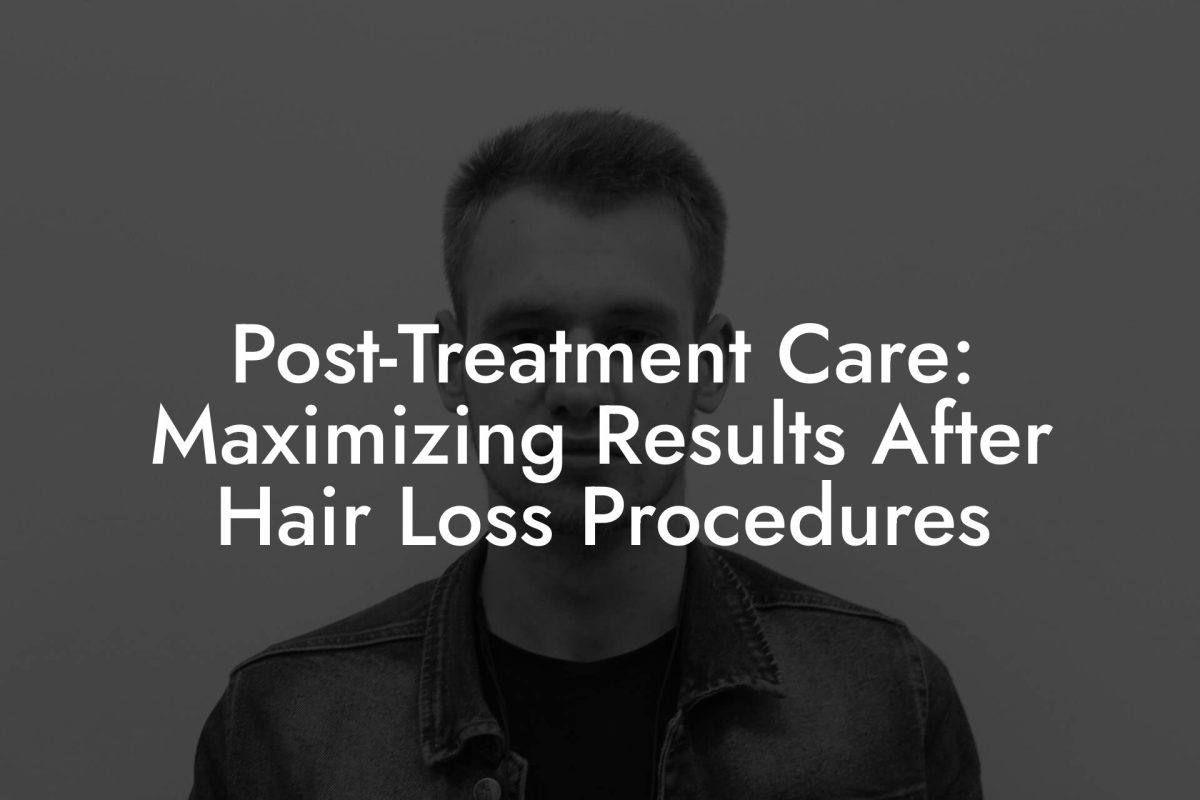Hair Loss Library
How to Prepare for a Hair Transplant: A Step-by-Step Guide

Ever wondered if your bald patch could be the opening act for a comeback tour? Welcome to our definitive guide on preparing for a hair transplant—a step-by-step manual packed with practical tips, cheeky humor, and real talk for millennials and Gen Z dudes facing hair loss. Here at Mane Matrix, we’re all about giving you expert analysis without any of that embarrassing hype or high-price consultations. So, buckle up as we navigate the world of hair transplants, from understanding your hair loss to strutting out with a killer mane.
Understanding Men’s Hair Loss Today
Hair loss isn’t just a random happenstance—it's a mix of genes, lifestyle, stress, and sometimes even bad luck. For many modern men, especially those in the millennial and Gen Z squads, hair loss is less about vanity and more about reclaiming confidence and a personal style that screams “I woke up like this!” Whether you’re sporting a receding hairline, thinning temples, or just feeling like your hair’s gone AWOL, understanding the cause is the first step towards a successful transformation.
Genetics, hormonal fluctuations, stress, and even dietary habits can trigger hair loss. While seeing a full head of hair in every mirror might be a thing of the past, it doesn’t mean your chin has to double as a shiny forehead. Embrace the journey as you explore various remedies, from modern medicine to lifestyle hacks, and eventually, that life-changing hair transplant.
In our fast-paced digital era, where trends change with every swipe, taking control of your hair health is more than a desire—it’s a statement. So, if you're ready to turn the page on hair loss, it's time to learn all about the steps leading up to a hair transplant.
Why Consider a Hair Transplant?
Let’s be real: hair transplants have come a long way since the days of pixelated hairlines in early computer graphics. Today’s procedures are so advanced that the results look natural, durable, and—dare we say it?—fashionably on point. But why exactly should you think about a hair transplant?
For starters, a hair transplant can be a game-changer in restoring not only your hairline but also your self-confidence. Instead of hiding behind caps and hats, you can step into the world with a renewed sense of pride. And hey, who wouldn’t want their selfies to reflect a fuller, thicker head of hair?
Moreover, these procedures are designed with you in mind—millennials and Gen Z demand solutions that are efficient, minimally invasive, and backed by science, without the unnecessary frills. At Mane Matrix, we aim to deliver just that, offering expert analysis free from overwhelming medical jargon or exorbitant fees. This makes the goal of reclaiming your natural hairline not just possible, but downright exciting.
Step 1: Consultation and Expert Analysis
The first step on your journey to a lush mane is a thorough consultation. Whether it’s a face-to-face meeting, a virtual consultation, or simply an online evaluation through Mane Matrix, this step is about understanding your unique hair loss pattern and discussing your goals. Think of it as your personal hair roadmap.
Finding the Right Clinic
Not all clinics are created equal. Look for one with a stellar reputation, advanced techniques, and plenty of before-and-after photos that make you go “Wow!” It’s essential to choose a provider who listens to your concerns and doesn’t push you into unnecessary treatments. And remember, a good consultation should feel like chatting with a knowledgeable friend rather than a hard-sell salesman.
Virtual Evaluations
In today’s digital age, online consultations are a thing—and they’re pretty awesome. With the help of high-resolution selfies and video chats, specialists can assess your hair loss without ever needing to see you in person. This means no awkward waiting rooms or uncomfortable questions about your grooming habits. At Mane Matrix, our virtual analysis is designed to respect your privacy while delivering professional insights.
Setting Realistic Expectations
One of the foremost goals of your consultation is to set realistic expectations about what a hair transplant can achieve for you. This discussion is key to understanding the possible outcomes, the timeline for hair growth, and any potential limitations based on your individual circumstances. By the end of your evaluation, you should be walking away with a clear vision and a tailored plan to achieve that crowning glory of yours.
Step 2: Understanding the Science Behind Your Transplant
Before you dive headfirst into the world of hair transplants, it's crucial to have a solid grasp of the science behind the procedure. Knowing the difference between techniques can help you make an informed decision and feel confident in your choice.
The Modern Methods: FUE vs. FUT
Two main methods dominate the hair transplant scene today: Follicular Unit Extraction (FUE) and Follicular Unit Transplantation (FUT). FUE is the more modern method, where individual hair follicles are extracted and then implanted into the thinning areas. This method is typically less invasive and leaves minimal scarring—perfect for those who enjoy rocking short hairstyles.
FUT, on the other hand, involves removing a strip of scalp from the donor area and dissecting it into individual follicular units. While the scar might be more noticeable, FUT can sometimes yield a larger amount of grafts in a single session. Your consultation will help determine which method aligns best with your hair loss pattern and aesthetic goals.
What to Expect During the Procedure
The actual transplant procedure takes several hours, during which you'll be comfortably sedated. The surgeon carefully extracts and then meticulously implants each graft into the predetermined areas. The precision of this procedure is what often leads to the natural-looking results that modern hair transplants are known for.
Understanding these details not only eases your nerves but also empowers you to ask questions and take an active role in your treatment plan. It’s all about combining scientific know-how with a touch of artistry to bring your hair back to life.
Step 3: Pre-Surgery Preparations – Setting the Stage for a Successful Transplant
Preparation is key when it comes to any surgery, and a hair transplant is no exception. This step involves several practical and lifestyle adjustments to ensure your body is in the best possible shape for the procedure.
Medical Examinations and Lab Tests
Prior to your surgery, your doctor may require a series of tests to assess your overall health. This might include blood tests, blood pressure checks, and sometimes even nutritional evaluations. The goal here is to ensure that your body can handle the procedure and recover smoothly.
Medication Management
Certain medications and supplements can interfere with the surgery or increase the risk of bleeding. It’s important to consult with your physician about any drugs you’re taking—both prescription and over-the-counter. Avoiding blood thinners and other medications that could complicate the procedure is essential for a safe transplant.
Lifestyle Adjustments: Diet, Exercise, and Stress Management
In the weeks leading up to your surgery, focus on optimizing your overall health. A nutrient-rich diet that emphasizes proteins, vitamins (especially biotin and vitamin D), and minerals can support healing and hair growth. Stay hydrated, engage in moderate exercise, and prioritize sleep—targeting at least 7-8 hours per night can make a significant difference in how your body handles stress and recovers post-surgery.
Stress is a known enemy of hair growth, so consider incorporating mindfulness practices like meditation or yoga into your routine. These techniques don’t just improve your mental health—they also pave the way for better surgical outcomes by reducing stress-induced inflammation.
Preparing Your Home for Recovery
A big part of the pre-surgery preparation is setting up a recovery-friendly environment. Stock your place with all the essentials: comfy pillows, distraction options (hello, Netflix marathons), and a well-organized space for your post-surgery care routine. Keep your follow-up instructions handy, and enlist a friend or family member to help with errands if needed.
When you’re mentally and physically prepped, you’re setting the stage for a smoother recovery and better results. Think of it as getting your life on “airplane mode” before takeoff—minimizing turbulence will help you land with a brand new, fuller head of hair.
Step 4: On the Day Of Surgery – What to Expect
The day of your hair transplant might feel like a rollercoaster ride—equal parts excitement and nerves. But with the right preparation, you’ll soon discover that it’s a manageable, even empowering, experience.
Getting Ready: Final Preparations
Start your day with a hearty, healthy breakfast. Avoid caffeinated or overly sugary beverages that might spike your anxiety. Dress in comfortable, loose-fitting clothes, and leave any jewelry and accessories at home. Don’t forget to bring a list of your pre-surgery instructions, identification, and any necessary medical documents.
The Check-In Process
Upon arrival at the clinic, you’ll check in and likely undergo a quick pre-op briefing with your surgical team. This is your final chance to ask last-minute questions about the procedure, the aftercare, or even the latest trending memes. A mix of professionalism and genuine care is standard, so rest assured you’re in capable hands.
During the Procedure
Once you’re prepped and settled, you’ll be guided to the procedure room. Local anesthesia or sedation will be administered to ensure you remain comfortable throughout the process. The doctor will then begin the intricate dance of extracting and implanting your hair follicles—think of it as precision art in real time. Although the procedure can last several hours, many patients find that a good podcast or an audiobook can make the time fly by.
Remember, your comfort is the top priority. Don’t hesitate to speak up if you need a break or have any concerns during the procedure. Your surgical team is there to keep you relaxed, informed, and on track for a stellar result.
Step 5: Post-Surgery Care – Nurturing Your New Mane
Congratulations! The procedure is done, and now it’s time for the all-important post-surgery care. This phase is critical for ensuring that your transplanted hair follicles take root and thrive.
The First 48 Hours
Immediately following the procedure, you may experience swelling, mild discomfort, or even a bit of tenderness in the donor and recipient areas. Your doctor will provide you with a detailed aftercare plan that typically includes instructions on how to care for your scalp, prescribed pain relievers, and guidelines on what activities to avoid. It’s essential to follow these instructions to the letter—think of it as giving your new hair the best chance to bloom.
Dos and Don’ts
Here’s a quick rundown of what to do (and avoid) during your recovery:
- Do: Keep your head elevated, gently wash your hair with a mild shampoo, and avoid touching your scalp unnecessarily.
- Do: Follow all medication guidelines and attend your scheduled follow-ups.
- Don’t: Engage in strenuous physical activities, expose your scalp to direct sunlight without protection, or use harsh hair products.
- Don’t: Pick or scratch the transplanted areas—patience is key here as your follicles settle in.
Recovery Milestones
While it might be tempting to assess your new look in the mirror every few hours, steady progress happens gradually. You might notice some shedding of the transplanted hair in the first few weeks—a normal part of the process known as “shock loss.” Don’t panic; this paves the way for fresh, robust growth in the following months. Typically, significant improvements are visible around the 6- to 12-month mark.
Embrace each milestone as a victory, whether it’s that first glimpse of new hair or the growing confidence that accompanies your evolving appearance.
Maintaining Your Look: Long-Term Hair Health & Lifestyle Tweaks
A hair transplant isn’t a one-and-done deal—it’s the beginning of a long-term journey to optimal hair health. Once you’ve successfully navigated the procedure and recovery, here are some tips to keep your new locks looking lush and vibrant.
Adopt a Consistent Haircare Routine: Invest in quality shampoos, conditioners, and styling products that promote scalp health. Think gentle, nourishing ingredients that won't irritate or damage your new hair follicles.
Pay Attention to Your Diet: Foods rich in vitamins, minerals, and proteins—like leafy greens, fish, nuts, and fruits—can help support hair growth and overall scalp health. Consider supplementing with biotin and vitamin D if advised by your doctor.
Manage Stress: High stress levels can negatively impact hair health. Incorporate stress-reducing activities into your daily routine, whether it’s workout sessions, meditation, or even a gaming break to decompress.
Regular Follow-Ups: Maintain communication with your hair transplant team. Regular check-ups allow early detection of any potential issues and provide you with ongoing advice tailored to your evolving needs.
By integrating these habits into your lifestyle, you'll not only safeguard your investment in your new look but also enjoy a more confident, vibrant version of yourself.
Resources and Community Support: Your Next Steps
Transitioning to a hair transplant and its aftercare can feel like navigating a jungle of new information. Luckily, you’re not alone. There’s a wealth of resources and supportive communities out there, ready to cheer you on and offer practical advice.
Expert Blogs and Forums
Dive into insightful blogs and online communities dedicated to hair restoration. Websites like Mane Matrix provide expert analysis and personal success stories that can help you make informed decisions. Take advantage of these resources to learn from others who have walked the same path.
Social Media Groups
Platforms like Reddit, Facebook, and Instagram are buzzing with vibrant communities where men share their experiences, tips, and even the occasional meme to lighten the mood. Whether you’re looking for before-and-after photos, detailed reviews of clinics, or just a friendly conversation, these groups can be invaluable.
Professional Guidance
Many clinics and hair restoration experts now offer virtual consultations and follow-up support. Use these services to get personalized advice and to address any concerns you might have as you navigate your hair transplant journey.
Remember, the journey to a fuller head of hair is as much about community as it is about clinical procedures. Embrace the support, share your progress, and learn from the experiences of others. There’s strength in numbers, and every shared story builds a roadmap to success.
Your Journey to a Bold New Mane: Embrace the Transformation
A hair transplant is more than a medical procedure—it’s an opportunity to reclaim your style, boost your confidence, and embrace a future where you’re in control of your look. Every step, from that all-important consultation to the diligent post-surgery care, is a building block in the transformation of your personal image.
As you embark on this journey, let your new mane serve as a reminder that change is always possible. With expert guidance from Mane Matrix and the support of a thriving community, you’re stepping into a future where your hair tells the story of resilience, innovation, and self-expression.
Keep your eyes on the road ahead, follow the plan, and celebrate the small wins along the way. Whether you’re just starting or well on your way to a breathtaking transformation, every moment is a step towards the confident, vibrant you that’s waiting to emerge.
So, gear up, stay committed, and get ready to transform your look while rocking an undeniably cool vibe. Your bold new mane awaits—and trust us, it’s going to be epic!
Frequently Asked Questions About Preparing for a Hair Transplant
Here are some of the most common questions we hear about hair transplant preparation. Read on for answers that reveal everything you need to know before taking the plunge.
1. Who is an ideal candidate for a hair transplant?
An ideal candidate has experienced significant hair loss and has stable donor areas with healthy hair follicles. A professional consultation at Mane Matrix will help assess your suitability based on your hair loss pattern and overall health.
2. How long should I prepare before undergoing a hair transplant?
Preparation can vary, but typically you should start adjusting your lifestyle and health habits at least a few weeks before the procedure. This includes optimizing your diet, managing medications, and ensuring your overall health is in top shape.
3. What types of tests or examinations will I need before the surgery?
Pre-surgery preparations may involve blood tests, scalp assessments, and consultations to assess your overall health. This step is crucial to ensure you’re a good candidate and that your body is ready for recovery.
4. Can I continue my regular workout routine before the transplant?
It’s best to ease off on intense workouts a few days before your surgery, as your doctor might advise avoiding strenuous activity to reduce the risk of complications. Light exercises and stretching are generally acceptable.
5. How do dietary changes contribute to a successful transplant?
A balanced, nutrient-rich diet boosts your immune system, aids recovery, and supports hair growth. Focus on protein-rich, anti-inflammatory foods and ensure proper hydration for optimal healing.
6. What should I expect on the day of the surgery?
On the day of your transplant, you’ll undergo a quick pre-op check-in, enjoy a brief sedation or local anesthesia, and then relax while the procedure unfolds. It’s a well-coordinated process with your comfort as a top priority.
7. How can I best support my recovery post-surgery?
Follow your doctor’s aftercare instructions closely, avoid strenuous activities, and keep the transplanted area clean. Regular follow-ups and a healthy lifestyle further enhance your recovery.
8. Are there any long-term lifestyle changes I should adopt after the procedure?
Yes, maintaining a balanced diet, managing stress, and following a regular haircare regimen can help sustain the results of your transplant over the long term.
9. How soon will I see results from my hair transplant?
Hair growth is gradual. While some initial growth may be noticeable within a few months, significant changes often become evident between 6 to 12 months post-procedure.
10. Is the hair transplant procedure permanent?
Yes, once transplanted, the hair follicles are typically resistant to the hormonal factors that cause hair loss. With proper care, the results can be long-lasting.
Your Bold Next Steps to a Fuller, Fresh Mane
Ready to take the leap and reclaim your confidence with a hair transplant? Whether you’re just beginning your research or are ready to book that consultation, this journey is all about embracing change with a mix of excitement and a dash of laid-back coolness. Your new look isn’t just about hair—it’s about a renewed sense of self and a future with endless possibilities.
Start today by reaching out for expert analysis from Mane Matrix. Engage with online communities, gather opinions, and equip yourself with all the knowledge you need to make informed decisions. With determination, proper prep, and a bit of humor along the way, you’ll be well on your way to sporting a mane that not only looks fantastic but feels like an extension of the bold, unstoppable you.
Remember, this isn’t just about covering up what’s lost—it’s about celebrating a refreshed, revitalized version of yourself. Let your journey toward a fuller head of hair be a testament to resilience and style, a narrative that you own and share with pride.
So go ahead, take that first step, and let your transformation begin. Your bold, new mane awaits, and trust us—it’s going to be one heck of a ride!
If you loved this article... Dive deeper into the world of mens hair loss with our most popular sections. If there is anything you think is missing or anything you would love for us to write about, just give us a shout.
Prescription Solutions: The Best Medications for Men’s Hair Loss
Minoxidil & Beyond: Exploring Topical Treatments for Hair Regrowth
How Finasteride Works: The Science Behind This Hair Loss Blocker
Platelet-Rich Plasma (PRP) Therapy: Is It the Answer to Hair Loss?
Hair Transplant 101: A Beginner’s Guide for Men
Exploring Laser Therapy: Non-Invasive Options for Hair Regrowth
The Pros and Cons of Oral Hair Loss Medications
New Frontiers in Hair Loss Treatment: Stem Cell Therapy Explained
Surgical vs. Non-Surgical: Which Hair Loss Treatment Is Right for You?
Understanding Combination Therapy for More Effective Hair Regrowth
How to Choose the Right Hair Loss Clinic: Expert Tips
Exploring Off-Label Treatments: What’s Worth Trying for Hair Loss?
Managing Side Effects: What to Expect from Hair Loss Medications
The Latest in Hair Loss Research: Emerging Medical Treatments
Microneedling for Hair Loss: Benefits, Risks, and Results
How PRP Therapy Boosts Hair Growth: A Closer Look
The Role of DHT in Hair Loss and How Medications Counteract It
Customized Treatment Plans: Tailoring Hair Loss Solutions for You
Understanding Clinical Trials: How New Hair Loss Treatments Are Tested
Breaking Down the Cost of Hair Loss Treatments: Is It Worth It?
How to Prepare for a Hair Transplant: A Step-by-Step Guide
Post-Treatment Care: Maximizing Results After Hair Loss Procedures
A Doctor’s Perspective: When to Consider Medical Hair Loss Treatments
Success Stories: Real Men Share Their Hair Restoration Journeys
The Future of Medical Hair Loss Solutions: Trends to Watch
















